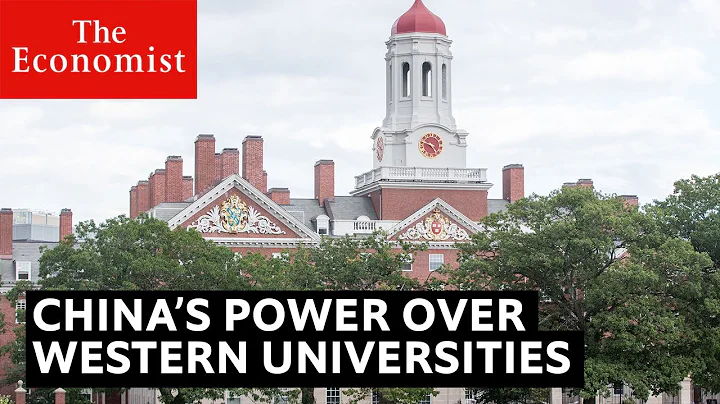

SCIENCE
Jiang Shengjie
is from Lindian County, Heilongjiang. He is a chemical engineering expert, nuclear engineering technology expert, and an academician of the Chinese Academy of Sciences. In 1936, Jiang Shengjie graduated from the Department of Mechanical and Electrical Engineering of Hebei Institute of Technology; in 1950, he received a master's degree from Columbia University in the United States. After returning to China in 1950, Jiang Shengjie completed more than a hundred technological innovations while presiding over the reconstruction and expansion of Yongli Ning Factory; in the 1960s Under his leadership, he established China's first large-scale military production reactor and nuclear fuel reprocessing plant, and made two innovations in the reprocessing process, bringing China's plutonium production technology to an advanced level. The establishment of the National Nuclear Safety Administration in the 1980s made important contributions to the establishment of China's nuclear safety supervision system. He won the 1956 State Council Special Award, the National Science and Technology Progress Award Special Prize, the National Invention Award Second Prize, and was awarded the French Knight Medal of the Legion of Honor.
Scientific achievements
Jiang Shengjie, as a well-known chemical engineering expert and nuclear engineering technology expert in my country, has made important contributions to the development of " two bombs " in our country. At the same time, he is also an active advocate and practitioner of peaceful development of nuclear energy and the development of nuclear power. A lot of pioneering work has been done to establish China’s nuclear safety management system.
Jiang Shengjie: Worked for the motherland and the people until the last moment of his life
"It is impossible for me to stay in the United States"
On November 14, 1915, Jiang Shengjie was born into a peasant family in Fanjiatun Village, Lindian County, Heilongjiang Province. Due to his poor family background, Jiang Shengjie entered a normal school after graduating from high school. He studied diligently and was among the best in his grades. In order to strive for better learning opportunities, he left his hometown and went to Beijing and Tianjin to study. In 1931, he was admitted to the Department of Mechanical and Electrical Engineering of Hebei Institute of Technology.
In 1936, the Wynn Company founded by the patriotic scientist Hou Debang happened to be recruiting college students. Jiang Shengjie, a college graduate, stood out in the fiercely competitive examination and was successfully hired by Wynn Company's Nanjing branch-Yongli Ning Factory. When Nanjing fell in 1937, Jiang Shengjie followed Hou Debang through Hunan, and finally stayed at the Wynn Sichuan Factory in Leshan, Sichuan. During this period, Jiang Shengjie came into contact with many technical personnel who had studied abroad, and he also came up with the idea of studying abroad to learn advanced technologies. He studied hard in his spare time and was ready to fight for it whenever he got the chance.
After the victory of the Anti-Japanese War, Hou Debang selected five people from Wynn Company, including Jiang Shengjie, to go to the United States for inspection. Jiang Shengjie was determined to make up for his regrets and took the graduate entrance examination in the United States to strive for the opportunity to study in the United States. Jiang Shengjie entered the Department of Chemical Engineering of Columbia University Graduate School with excellent grades. After graduation, Jiang Shengjie was introduced by Hou Debang and actively went to internships in large factories in the United States to accumulate experience and gain knowledge so that he could better apply theoretical knowledge to practice after returning to China. After the internship, Jiang Shengjie faced two choices. One was not to return to China, but to become a U.S. citizen and enjoy favorable living conditions and scientific research environment; the other was to return to China and grow with the new Republic, face unknown difficulties and challenges, and embark on a pioneering path. the path of the beholder. Jiang Shengjie resolutely chose the latter. He said, "I went to the United States to learn cultural knowledge and contribute to the motherland. It is impossible for me to stay in the United States." Jiang Shengjie returned to the embrace of his motherland without hesitation.
8 months or 20 years?
At the beginning of the founding of New China, the country was in dire need of development and people’s lives were difficult. The first problem that the country needs to solve is the problem of feeding the people, and the key to increasing grain production is chemical fertilizers. It is particularly important to speed up the development of chemical fertilizer production. As a fertilizer production base, Yongli Ning Factory bears heavy responsibilities. Based on Jiang Shengjie's long-term cooperative relationship with Yongli Company and his excellent professional background, Hou Debang invited him to serve as deputy director and chief engineer. Jiang Shengjie took over this important task and devoted himself to his work with selfless enthusiasm.
While working in Yongli Ning Factory and Nanjing Chemical Factory, Jiang Shengjie made innovations and breakthroughs in the improvement of fertilizer raw materials and mechanized production. At that time, my country's fertilizer production mainly used coke as raw material. Coke is not only a raw material for fertilizer production, but also the main raw material for steelmaking. The lack of coke is a bottleneck restricting fertilizer production. In this regard, Jiang Shengjie proposed the idea of using my country's abundant anthracite coal to replace coke and produce nitrogen synthesis gas. This idea was fully affirmed and supported by his superiors. Soon, Jiang Shengjie led the technical staff to explore a series of process technologies and equipment structures for using anthracite coal, and successfully applied them to large-scale production.
At the same time, Jiang Shengjie was keenly aware that in order to increase fertilizer production, it was not enough to solve the problem of raw materials. The mechanization of equipment was the key. He put forward the view that "chemical industry succeeds in machinery" and led technicians to delve deeply into the manufacturing of high-pressure vessels. . High-pressure vessels are key equipment for the production of chemical fertilizers, and there are very few countries that can produce their own equipment. Some foreign experts assert that China will have to wait 20 years to manufacture high-pressure vessels. However, Jiang Shengjie's team successfully achieved this goal in only 8 months. This marks that my country's ability to manufacture heavy chemical equipment has reached a new level, ending the era when all high-pressure vessels relied on imports.
Many of Jiang Shengjie’s achievements in the chemical industry have been applied nationwide and have made outstanding contributions to my country’s chemical industry.
Go to the Gobi Desert alone
Just when Jiang Shengjie was preparing to re-plan for the chemical industry and expand his ambitions, the central government decided to independently develop the "two bombs". After weighing and considering various conditions, Jiang Shengjie was selected as a key figure. . At this time, Jiang Shengjie was nearly 50 years old and had been deeply involved in the chemical industry for nearly 30 years. When he suddenly changed careers, he felt reluctant and anxious. In addition, his wife was half-paralyzed in bed and had no children. The family difficulties made Jiang Shengjie unable to make up his mind.
At the beginning of 1963, Premier Zhou Enlai personally met with Jiang Shengjie at Zhongnanhai . Faced with the expectations of his motherland, Jiang Shengjie resolutely decided to temporarily give up his plans for the chemical industry and entrust his family to the organization. For the security of the country and the rejuvenation of the nation, he went to the Gobi Desert and embarked on an unknown and arduous journey.
Jiang Shengjie came to the Second Machinery Department with a timetable to report. He broke down the major tasks into important tasks, trying to complete the tasks steadily, with quality and quantity, and never hinder the entire plan. Jiang Shengjie paid special attention to the design and technology of the equipment. He innovatively improved the single-tube condenser designed by Soviet experts and replaced the rotating single-tube condenser with a large static baffle container, which fundamentally solved the problem of instability of the single-tube condenser. The completion and commissioning of the uranium-235 production line led and responsible by Jiang Shengjie laid the foundation for the success of my country's first underground nuclear test in 1969.
Jiang Shengjie also made great contributions to the establishment of the nuclear fuel cycle system. After the success of the first nuclear test, Jiang Shengjie and his technical staff quickly invested in the construction of the "second-line project". "Second-line projects" include important production projects such as reactor factories, reprocessing plants, and nuclear component processing and manufacturing plants. There are two options for the design of the post-treatment plant, one is the precipitation method process, and the other is the extraction method process. The latter has excellent performance, saves investment and raw materials, but is difficult to implement and carries high risks. Jiang Shengjie faced the difficulties, worked with technical staff to tackle key problems, went through countless discussions and improvements, and finally achieved success. The improvement of the extraction process has narrowed the gap in process technology between my country and the world's advanced levels. The reactor factory is one of the key points of the "second-line project". It has faced various difficulties such as forced interruption, incomplete equipment, and serious lack of data when resuming construction. Jiang Shengjie led the technical staff to make a series of technological innovations and transformations, and in special times, deployed and planned to implement the startup plan in advance. In October 1966, the reactor began to physically start up, reaching criticality five days later, and the start-up was a complete success.
Jiang Shengjie has lived in the Gobi Desert for 13 years and only went home to visit relatives three times, which totaled only 33 days.
"Cold? It won't work when it's cold?"
The successful explosion of the "two bombs" and the launch of the nuclear submarine marked the formation of the nuclear system. Jiang Shengjie realized that the sustainable development of the nuclear industry is closely related to the rational utilization of nuclear energy. Making full use of nuclear energy in people's livelihood industries has become an urgent issue for the nuclear industry. In order to develop nuclear power, Jiang Shengjie continued to study and research, and published dozens of relevant articles in newspapers to popularize and promote the construction of nuclear power.
In the 1980s, China's nuclear power construction officially started. Along with the development of nuclear power came the issue of nuclear safety. Jiang Shengjie was appointed as the first director of the National Nuclear Safety Administration. He comprehensively conceived the framework of the Nuclear Safety Administration, carried out legislative work on nuclear safety, and did a lot of practical work to ensure the safety of nuclear power with reference to the standards of international and advanced countries. In addition, Jiang Shengjie realized the importance of publicity work in advance. If we want nuclear power to be better applied, it is important to break people's prejudice against nuclear power. He believes that the key to people's psychological fear of nuclear power is their lack of understanding of nuclear power plants. In this regard, Jiang Shengjie used a vivid metaphor: the charging material of the atomic bomb and is like strong wine, and the charging material of the nuclear power plant is like beer. Strong wine can be ignited with a match, but beer cannot be ignited.
While developing the nuclear industry, Jiang Shengjie did not forget his "old business", the chemical industry, and did a lot of specific work in converting the nuclear industry system from military to civilian, including the construction of the "816 Fertilizer Project" in Fuling, Sichuan. During the construction of the project, Jiang Shengjie, who was over seventy years old, visited the site many times to inspect and guide the work. In December 1992, Jiang Shengjie went to the site again for inspection. Because of the cold weather, the leaders in the ministry advised him not to go there in person. Jiang Shengjie replied: "Cold? You won't work if it's cold?" Sadly, after arriving at Chongqing Airport , he suffered a heart attack and had to be rescued. Invalid passed away at the age of 77.
Jiang Shengjie has quietly dedicated his life to scientific research and national rejuvenation. Accompanying him on this path are his exploration of scientific research, his love for the motherland, and his responsibility to the people.
Source: Science and Technology Association reform in progress













![[Sub Chinese,Eng,Pinyin,Thai] Dong Zhuo Trailer Music (Total War: Three Kingdoms) - DayDayNews](https://i.ytimg.com/vi/vPewO13zglE/hq720.jpg?sqp=-oaymwEcCNAFEJQDSFXyq4qpAw4IARUAAIhCGAFwAcABBg==&rs=AOn4CLCEDZ2peXobSVYwIQGiO4Jo_YbuVw)







